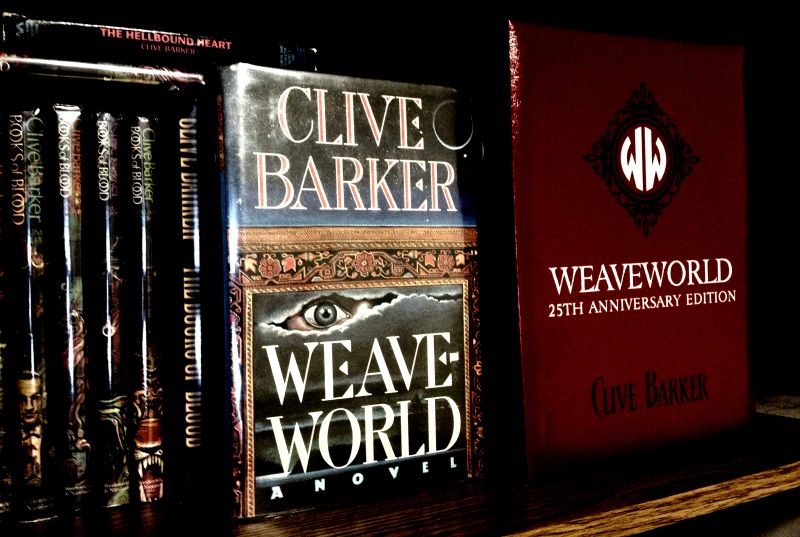Thriving In The Room: Advice from Staffed Writers

Television is a hard game to break into. But it’s not impossible. If you missed it, you should check out our previous blog “A View from the Bottom: 3 Lessons from Rising TV Writer’s Assistants” for some advice from those just breaking in. But what about writers that are more established?
One of the amazing things about being a writer is that no matter what your level of experience, there’s always something to learn. I asked a couple writers to lay out some of the more valuable lessons they gleaned in their first year of being staffed, and how those lessons continue to apply to the work they’re doing now.
If you’re a fan of The Goldbergs or Army Wives you’ve definitely seen these names before. Lewaa Nasserdeen and Rob Forman, two fantastic writers, have a few things to impart to anyone looking to break in.
What are you currently writing on?
(Lewaa Nasserdeen)
I’m currently writing on the second season of the ABC comedy, The Goldbergs. We are nearing the end of it as we speak!
(Rob Forman)
I just wrapped writing on the first season of CW's iZombie.
What is the most important lesson you learned in your first year on staff?
(LN)
The best advice I could give to anyone in a writer’s room is to -- know your audience – both the audience of your show and the audience of your room (your coworkers). Your job is to contribute to the flow of the room, regardless of if you agree with the pitch/story that’s on the table or not. Don’t be a roadblock in any way. Read your room. Know when to pitch and when not to. Also, your position is solution-based. Don’t point out holes in a story unless you can contribute a fix. Lastly, people want to be around people they like. Be present. Be open. Be kind. You are going to spend so many late nights with your coworkers – it’s not enough to be a great writer if people want to dropkick you once 9pm rolls around.
(RF)
Being on staff means giving up control. I learned a lot in my first year on staff, which was the seventh — and what turned out to be the final — season of Lifetime's Army Wives. Part of that is due to the fact that the showrunner, Jeff Melvoin (Alias, Northern Exposure, countless other credits), is an incredible educator. I'll actually go one year prior to that, though, for the most important lesson I learned about writing on television. I was the writers assistant on Army Wives for seasons five and six and during season six I was given the opportunity to write a freelance script, my first "written by" credit (check it out, season six, episode seventeen "Hello, Stranger").
We broke the story beats and I was sent off to write the outline. I was in my office organizing my thoughts when Karen Maser (ER)--the co-executive producer who was in her fourth season on the show and who was assigned to help guide me and to read my draft before sending it on to Jeff--popped her head in and said "Don't worry, he rewrites every word I write, too." I hadn't written word one yet! It wasn't literally true, of course, but it was a great way to set my expectations.
Being rewritten is a very odd experience, because when we write spec scripts or original pilots, we're used to having the final word on creative decisions. Your job on staff is to support the showrunner's vision. On every show I've been a part of, whether as a writer or as an assistant, everything ultimately goes through the showrunner's computer. Learning early on that the drafts I turn in are going to be rewritten, no matter what, was actually very freeing because it took the pressure off. I wrote my best version of the story, saw what my boss liked, and then went from there.
What was the biggest challenge you faced in being new to the room?
(LN)
There are politics in any room; the biggest challenge was navigating those waters and figuring out where I fit in.
That takes time. Don't beat yourself. Silence is power. Don’t pitch on everything. Learn from the seniors in your room, find a mentor on staff and learn where you can make yourself invaluable.
(RF)
The biggest challenge I faced being new to the room was that I wasn't new to it. With the exception of a new writing team hired for the seventh season of Army Wives, everyone in the office had been there before and knew me... as an assistant. The goal of being on the support staff of a writers office is to get promoted, but when I was staffed I had to train my replacement and then had to fill in for her on the occasions that she was out of the office. It was like having one foot in both worlds and it was a little frustrating because when you finally do get that staff position, all you want is to shed your assistant skin because you want to feel like and be looked at as "writer" and not "assistant." I think it's a nagging insecurity that anyone promoted internally feels in any industry. No one in the office made me feel that way, I made me feel that way.
Do you have any tips for writers getting staffed for the first time?
(LN)
Relax, slow down and remember you were hired for a reason. You didn't trip up the ladder. You are in a writer's room because you are a writer. Now, we all suffer from a little "impostor syndrome" but you can't let that get in the way of being the best staff writer you can be. With that said, insecurities associated with this career can be insufferable so it's key that you have certain practices that get you out of your own head. Find those that work best for you. Some people like the beach (me), others like Vicodin and wine.
Next, remember that sometimes the most confident thing you can do in the room is... KEEP QUIET. Higher level writers don't expect anything from the staff writer - that doesn't mean you should be lazy. It's the opposite actually. You just need to know when it is your time to speak up and when it is best to sit back and let Mom and Dad fight it out.
Also, look to your fellow writers. Whose pitching style do you admire? What language does your showrunner respond to the best? Adjust and adapt your style. Another thing, when you're on a hot streak (your pitch is on the board. You have a story fix. Your jokes are landing), don't make the mistake of thinking that gives you the green-light to keep going. Pump the brakes. Take the win. You've proven yourself. You don't want the tide going the other way. In short, take your victories and head for the exit.
Key advice in any industry: MAKE YOURSELF INVALUABLE. Find a way to be the go-to guy for something (nailing down a character's voice, writing voiceovers, pitching certain types of jokes). When you do that, you're helping to justify your position on the team.
Finally, YOU'RE STAFFED! You made it.
(RF)
I am a veritable font of tips for writers getting staffed for the first time. Where to begin? Never shower, never leave the office, and never change clothes. People will love your commitment to the craft. Seriously, though, here are three big tips for a first time staff writer:
First and foremost, no matter what the issue you're having with the story or the personality conflict you're having with a coworker, never forget how lucky you are. You’re writing for TV. How freaking cool is that?
Second, with that saccharine stuff out of the way, observe on day one. There is a hierarchy in writers' rooms and, no matter how egalitarian the environment, you are at the bottom as a staff writer. It's a fine needle to thread because you were hired for your voice, both written and spoken; you are expected to contribute. But it's never a bad idea to get the lay of the land. Let the showrunner set the tone and the agenda.
Third, be flexible with your pitches. No one likes a naysayer in the room. Naysayers drag the energy down. You can't just say "no" all the time. Try to build on other people's ideas. If you're pointing out a problem, offer a solution. Next, only pitch the same idea twice. I can't tell you how many writers I've encountered who I mentally label as "a dog with a bone."
They will keep pitching the same thing over and over and over again even when it's clear the showrunner has zero interest. Do that enough, and the showrunner (not to mention the rest of the staff) will probably get annoyed with you. If I'm really keen on an idea and the showrunner isn't on board, I will pitch it again from a different angle. Maybe what my boss didn't love was how I expressed the idea, as opposed to the idea itself. If the showrunner still says no? Move on. If the room is still stuck on the same problem in 48 hours, you can bring it up again. Then you can secretly curse everyone for not seeing your brilliance two days ago.
The flip side of that tip is that sometimes you're just not the right person to pitch a certain idea. You pitch it in the morning and it's rejected, someone else pitches it (sometimes even verbatim) in the afternoon and it's genius. That's life. I like to think of it as "once I've said an idea in the room, the idea belongs to the room." Hopefully the other writer remembers to give you credit (and when you inevitably do this, and you will, hopefully you will remember to credit the other writer).
You can follow Rob Forman on Twitter at @robsforman if you’re into that sort of thing. And while you’re busy watching The Goldbergs and iZombie, keep an eye on these guys. Who knows? Someday they may be the showrunner that staffs you.
And for tips on how to navigate TV fellowship season, check out The TV Fellowship Season Survival Guide.
Tags
Get Our Screenwriting Newsletter!
Get weekly writing inspiration delivered to your inbox - including industry news, popular articles, and more!



























